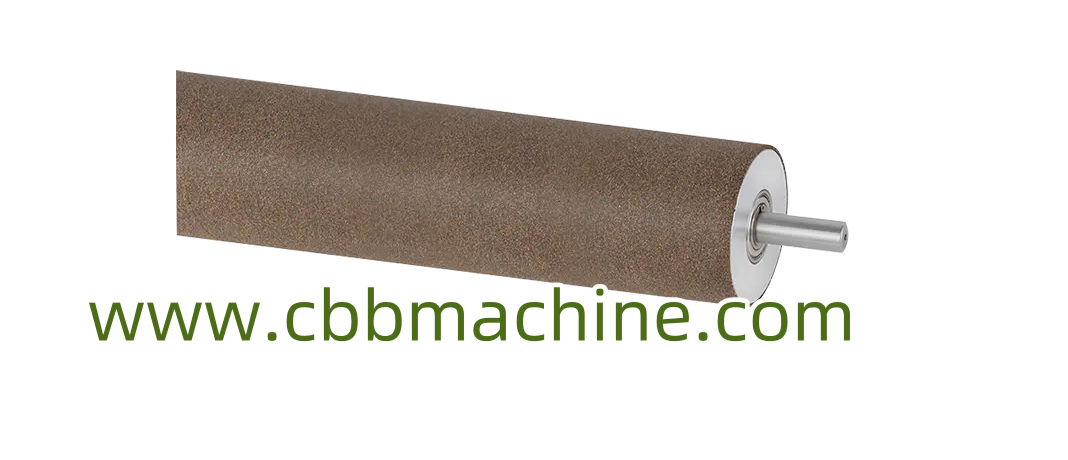Understanding the Industrial Role of the Aluminum Roller

Aluminum Roller systems are widely utilized in a range of industrial applications due to their lightweight structure, durability, and excellent resistance to corrosion. These rollers serve as essential components in web handling systems, playing a significant role in material transportation, tension regulation, and surface contact processes. Their precision-engineered design ensures smooth and consistent movement, supporting manufacturing operations across sectors such as printing, packaging, textiles, and plastic film production.
In modern production environments where speed and precision are both essential, the structure and quality of rollers can significantly affect process outcomes. Aluminum rollers offer a reliable solution by combining strength with low weight, reducing the strain on machines and increasing operational efficiency. Unlike heavier steel rollers, aluminum options allow for easier handling, faster acceleration, and lower energy consumption, making them especially suitable for high-speed production lines.
One of the defining advantages of aluminum is its natural resistance to oxidation. When exposed to air, aluminum forms a protective oxide layer that shields it from further corrosion. This property makes aluminum rollers ideal for environments where moisture, humidity, or chemical exposure is a concern. Additionally, aluminum can be anodized to enhance this corrosion resistance and provide a harder surface layer that further improves wear performance.
Surface treatments on aluminum rollers can also be tailored to meet specific industrial needs. Anodizing, hard coating, and surface polishing are common options that improve wear resistance, enhance friction characteristics, and reduce the buildup of contaminants on the roller. These customizations help optimize material contact and ensure clean, damage-free web handling, even with delicate substrates such as thin films or coated papers.
From a mechanical perspective, aluminum rollers must be manufactured with precision to maintain balance and alignment. High concentricity is essential to prevent vibration and uneven pressure distribution, which can damage the material being processed. Advanced machining techniques and quality control measures ensure that aluminum rollers perform with minimal runout and long-term stability.
In applications involving high temperatures, aluminum also demonstrates excellent thermal conductivity. This allows it to dissipate heat quickly, helping to prevent thermal deformation and ensuring stable operation over extended runs. In some cases, aluminum rollers are even integrated into cooling systems to regulate web temperature during lamination or extrusion processes.
Another reason aluminum rollers are favored in modern factories is their recyclability. Aluminum can be reused indefinitely without a loss of material integrity. This aligns with many manufacturers’ sustainability goals and supports a more circular production model. Whether it’s in a high-volume printing facility or a flexible packaging line, aluminum rollers offer a long lifecycle and minimal environmental impact.
While aluminum is relatively soft compared to steel, proper design and surface treatment allow aluminum rollers to handle a wide range of industrial demands. In applications requiring high load capacity, internal reinforcements or specialized wall thicknesses can be incorporated to improve structural strength. This flexibility in design makes aluminum rollers a versatile choice for both light-duty and more intensive use cases.
Maintenance is another area where aluminum rollers show their advantages. Their smooth, corrosion-resistant surface makes them easy to clean and maintain. This contributes to reduced downtime and supports a cleaner production environment. Proper maintenance can extend the service life of the rollers significantly, and replacement is straightforward thanks to their lightweight construction.
Overall, the combination of durability, performance, and adaptability makes aluminum rollers a dependable choice in diverse manufacturing settings. Choosing the appropriate roller depends on factors such as web material, line speed, environmental conditions, and production volume. By selecting aluminum rollers tailored to your specific application, you can improve product quality, increase efficiency, and reduce overall equipment wear.
- Art
- Causes
- Crafts
- Dance
- Drinks
- Film
- Fitness
- Food
- Juegos
- Gardening
- Health
- Inicio
- Literature
- Music
- Networking
- Otro
- Party
- Religion
- Shopping
- Sports
- Theater
- Wellness


